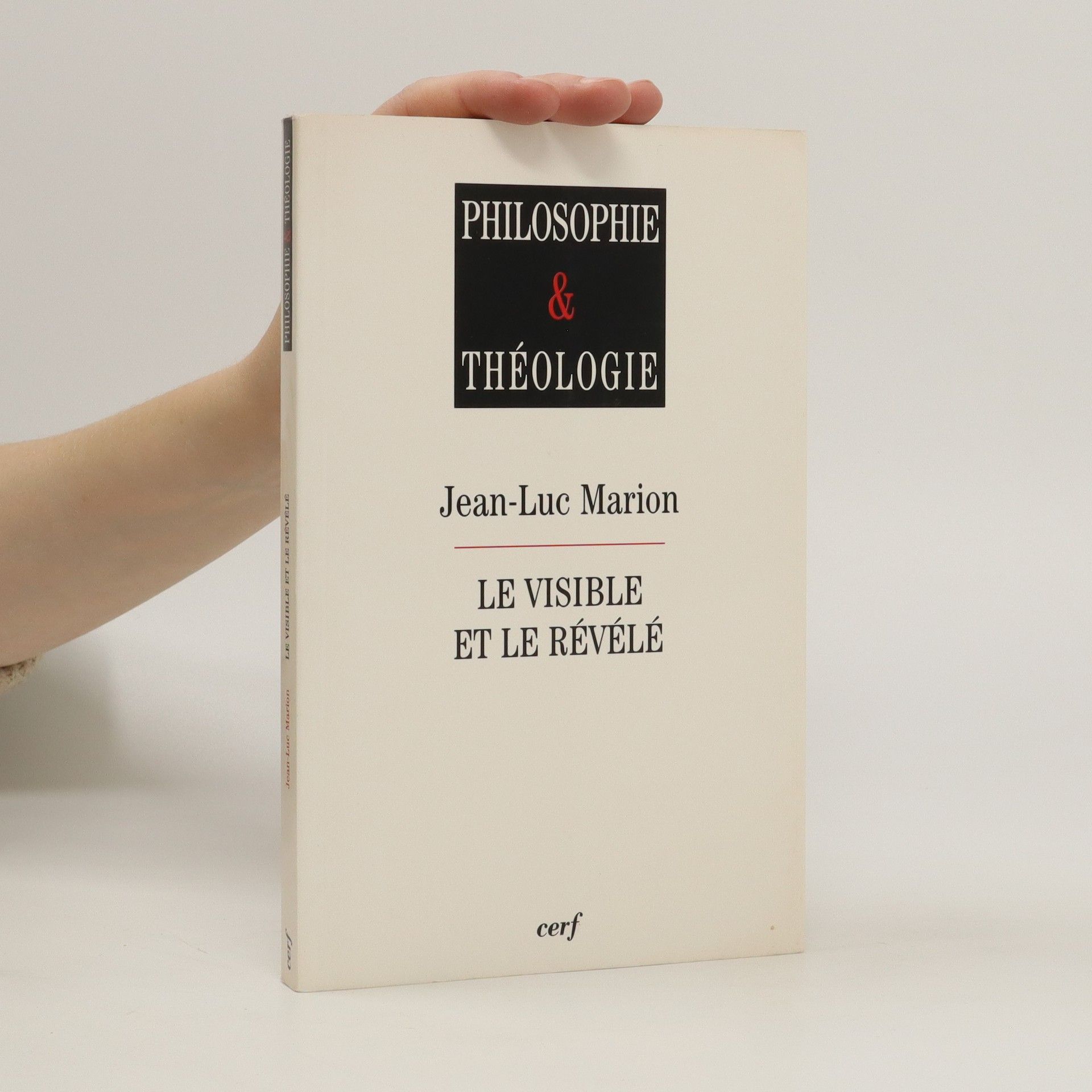« Pour une part essentielle, la phénoménologie assume, en notre siècle, le rôle même de la philosophie. » La démarche de l'auteur est premièrement décrire le phénomène réduit à sa donation, deuxièmement redéfinir le don, contre son interprétation économique, à partir de la pure donation, ensuite déterminer les caractères du phénomène comme un strict donné, enfin distinguer les degrés de donation du donné. Étant donné constitue ainsi le premier élément d'un triptyque formé par Réduction et donation (2e éd. Puf, 2004), complété et commenté par De surcroît, études sur les phénomènes saturés (Puf, 2001).
Jean Luc Marion Livres
Jean-Luc Marion est un philosophe et universitaire français. Ses travaux abordent la phénoménologie et la théologie, mettant l'accent sur le phénomène du don et les phénomènes dits « saturés ». Il explore les liens profonds entre l'être et Dieu, offrant une perspective novatrice sur les interrogations philosophiques traditionnelles. Sa pensée est reconnue pour sa rigueur et sa profondeur.






Certitudes négatives
- 324pages
- 12 heures de lecture
Connaître implique une certitude des objets, et selon les sciences, seule la certitude affirmative et scientifique compte. Ce qui est dit en philosophie ou littérature ne fournirait aucune certitude. Ce livre remet en question cette idée. Une question, si elle a du sens, peut mener à une certitude, tant que nous comprenons pourquoi et comment elle peut rester sans réponse. Les questions sans réponse peuvent aussi engendrer des certitudes, mais négatives. Par exemple, la définition de l'homme ne devrait pas avoir de réponse, car cela conduirait à exclure certains individus. De même, la question de Dieu persiste malgré les arguments sur l'impossibilité de son expérience, car Dieu concerne ce qui reste inaccessible. Le don, ainsi que le pardon et le sacrifice, ne peuvent être soumis à des conditions de possibilité, car ils transcendent l'économie des échanges. L'événement se produit sans prévision et contre toute attente, car il ne peut jamais être complètement compris comme un objet ou un spectacle. Ces certitudes négatives, que rien ne pourra corriger ou invalider, pourraient nous offrir une certitude infiniment plus grande que toute affirmation.
Le visible et le révélé
- 190pages
- 7 heures de lecture
The Essential Writings
- 564pages
- 20 heures de lecture
Jean-Luc Marion: The Essential Writings is an anthology of Marion's diverse writings in the history of philosophy, Christian theology, and phenomenology. The general introduction provides students with sufficient background for them to tackle the work of this important contemporary philosopher without first having to take preliminary courses on Husserl and Heidegger.
"This short, accessible volume by one of France's leading philosophers provides insight into what "catholic"--in the sense of universal or all-embracing--truly means, and how this might relates to being a Catholic in the present moment. Jean-Luc Marion tackles complex issues surrounding secularism and what is often framed as a tension or conflict between "Islam and the West," focusing on the situation in France but addressing a larger Catholic audience that transcends national boundaries, social identities, and linguistic differences"--
»Gott ohne Sein« untersucht Gottes absolute Freiheit jenseits begrifflicher Bestimmungen, insbesondere des Seins. Marion argumentiert, dass Liebe der zentrale Begriff ist, um Gott zu verstehen. Das Werk verbindet Philosophie und Theologie und bietet einen neuen Denkhorizont für eine zeitgenössische christliche Theologie, die prä- und postmodern ist.
Die Stringenz der Dinge
Gespräche mit Dan Arbib
Jean-Luc Marion gilt als einer der renommiertesten Philosophen Frankreichs. Seine Forschungen decken das breite Spektrum der Phanomenologie, Philosophiegeschichte und Theologie ab und werden weltweit diskutiert. In den von seinem Schuler Dan Arbib organisierten Gesprachen gibt Marion einen allgemein verstandlichen Einblick in seinen geistigen Werdegang. In mehr oder weniger direkter Auseinandersetzung mit seinen philosophischen Zeitgenossen zeichnet Marion das Bild einer Philosophie, die sich ganz der Stringenz der Dinge verschreibt und heutigem zweckrationalen Denken kritisch gegenubersteht.
Alber-Broschur Philosophie: Phänomenologie des Idols
- 286pages
- 11 heures de lecture
German
